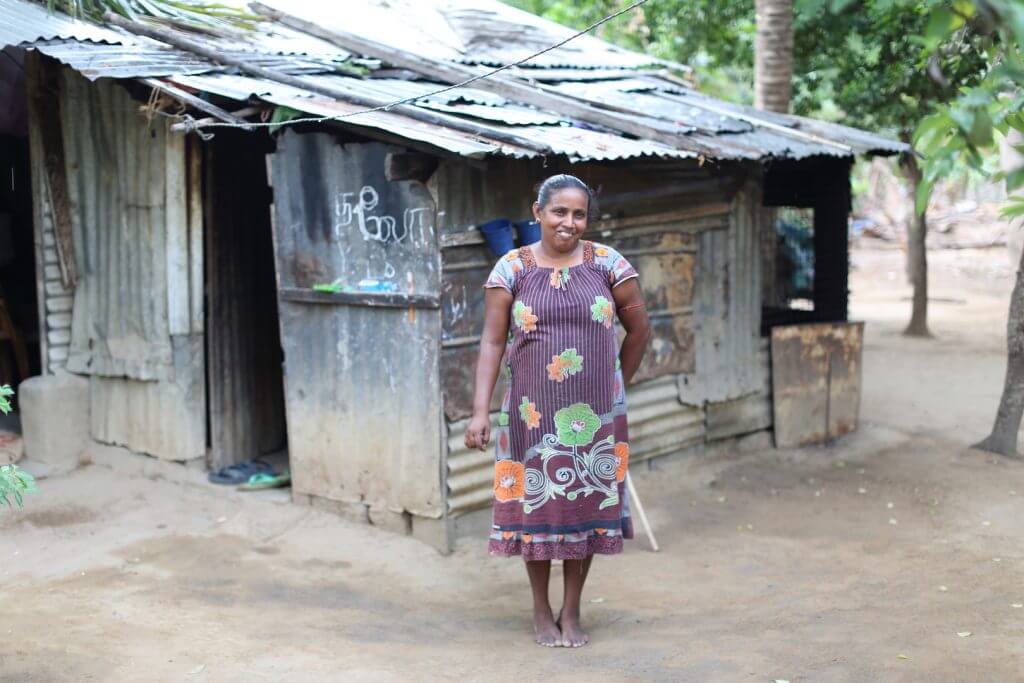Fresh Start with New Toilets
Thank you to all our donors, we have met our fundraising goal.
BACKGROUND
In 1994, 75 Indian families were relocated to Kappachchi by the Government. At the time, the Government provided 20 families with permanent toilets and the rest with semi-permanent toilets. After years of conflict and ongoing displacement of these and other families, the semi-permanent toilets have been damaged beyond use.
Today, 55 families have no toilet facilities at all, and have to use open areas. This has led to a number of health problems and security problems particularly for women and young children.
In addition to the toilet problem there is also a lack of access to water. The entire village depends on 6 common tube wells and 3 common dug wells for drinking, cooking and other domestic purposes.
Part of this project is to provide water drums to each beneficiary family for use with the toilets. The village will also receive training on how to collect and store water to avoid waterborne diseases.
THE PROJECT
Currently many families in the Kappachchi Village have to use open areas as toilets. This poses risks of attacks particularly to women and children as they walk from the safety of their homes. There are also serious health issues like diarrhoea in the Kappachchi Village, resulting from factors such as insufficient hand washing and contaminated water. According to UNICEF in 2008, more children died from diarrhoea than from malaria, HIV/AIDS and measles.
With the help of the 35 beneficiary families, we are building 35 toilets to improve sanitation and reduce the risk of attacks on women and children who currently have to use open areas. The families will receive training on proper use and maintenance of the toilets.
We will also train the Kappachchi Village in health and hygiene to reduce the incidence of waterborne illness such as diarrhoea which can otherwise prove life-threatening.

HOW IT WILL WORK
We will identify 35 of the most in need families (focusing on women-headed households and people with disability) and give a demonstration on how to build the toilets. We will then work with them (depending on their capabilities) to build toilets close to their homes. The 35 beneficiary families will receive training on using and maintaining the toilets so they are properly functioning in the future. By personally contributing to building the toilets (to the extent possible) the beneficiaries can feel a sense of accomplishment and will more likely be keen to ensure the toilets are well maintained.
The Kappachchi Village will receive training on prevention and management of waterborne diseases (eg. handwashing, how to collect and store water for domestic use) so the prevalence of health issues such as diarrhoea can be reduced.
THE BENEFITS
35 of the most in need families in the Kappachchi Village will have their own toilets (with water drums) and to the extent possible, they will help to build the toilets
The beneficiary families will learn how to clean, use and maintain their toilets into the future
Improved safety in the village as women and children from the 35 families will no longer have to go far from their home to use the toilet
Reduced incidence of waterborne disease across the community, as village members will better understand the importance of good hygiene and prevention measures such as boiling water for drinking
With access to clean water and sanitation, the 35 most vulnerable families will begin to have renewed confidence and good health to improve other areas of their lives such as seeking employment.
HOW WE ENSURE SUSTAINABILITY
The training is a key part of this project. By training the families in the use and maintenance of the toilets, the toilets can be useful for many years. By training the village in health and hygiene, they can gain the knowledge to ensure the incidence of waterborne illness continues to decrease.


